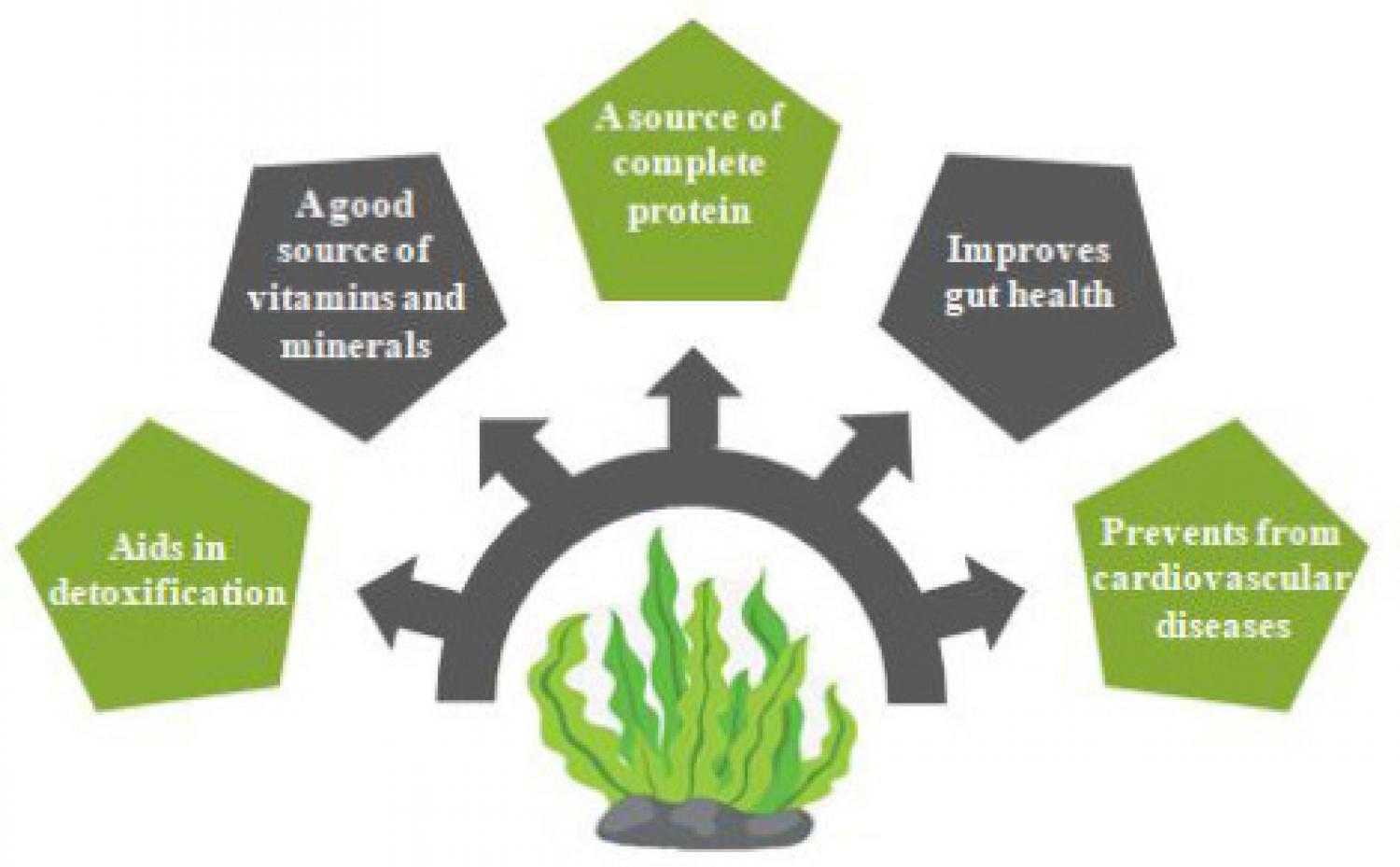
The eminent protein sources among the vegetarian population include cereals and pulses that do not satisfy the Recommended Dietary Allowance (RDA) level. The anti-nutrients such as protease inhibitors are responsible for the diminished bioavailability of plant protein. Consumption of a protein deficit diet severely impacts muscle health; hence, it becomes necessary to design an alternative source of complete protein. One such non-meat source with all essential amino acids in required quantity is seaweeds, an aquatic plant. The unique flavour and umami taste possessed by seaweeds notably enhance consumer acceptability. The principal focus of this review was on novel food products, digestibility, quality of protein, and consumer satisfactoriness of consuming seaweeds. The yield of seaweed obtained is based on the aquaculture system's type, location, season, and other environmental conditions, which is a significant challenge faced during extraction. This hurdle may prevail via unconventional extraction procedures summarized in this review. Subsequently, the consumers are becoming health conscious, seaweed-based food products are predicted to have excellent market potential. It is concluded that seaweeds can potentially contribute to future global security in functional foods and nutraceuticals.
